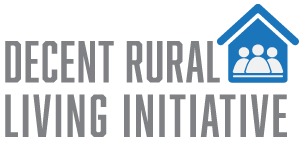Covid-19 Response
Since the emergence of Covid-19 in early March 2020 as a serious threat to the global population, businesses have had to adapt to different ways of working and operating, and the oil palm sector has not been spared.
The Covid-19 pandemic has identified several issues relating to worker well-being, which are currently being addressed in various ways by the DRLI member companies. These issues, and the various interventions put in place, have highlighted the potential improvements that can continue post-emergency into general good practice. This has been summarized in Table 1.
The current Covid-19 pandemic has highlighted a few outcomes:
Generally it is noted that the spread of Covid-19 virus has been less intense in the oil palm plantation operations compared to other labour intensive industries, notably those in urban areas. The DRLI companies have not recorded high incidents of positive Covid-19 cases, though this data is not necessarily representative of the entire industry. This could be linked to inherent set up of oil palm plantation operations in general:
- the availability of more open space in estates, with majority of work being carried out in the outdoors
- the provision of estate housing per employee and their nucleus family unit, that is generally in individual housing units per family
- the provision of free basic health care or clinics in very close proximity to estate housing
- the ability to control traffic through estates, thereby minimizing external spread of the virus
That the local communities in the vicinity of an oil palm plantation company are critical stakeholders and should be part of any plantation company’s business strategy. In the case of Covid-19, it is clear that the biggest risk of infection to employees of a plantation estate is from the local community living close by. For the Covid-19 emergency, it was necessary to ensure that the local community are also being included as part of interventions. Notably:
- Provided with PPE (like masks, sanitizers, and disinfectants), and equipment required for hand washing
- Included in health-related communication and information on the dangers of Covid-19, ways to prevent transmission, and what to do if there is suspicion of Covid-19 infection
- Provided with access to estate health facilities
- Provided with access to food, whether through donations, contributions, or access to land for small scale vegetable/fruit planting
Interaction with local government is critical to the effectiveness of the DRLI companies’ Covid-19 coping strategies. A well-resourced and resilient local government is better equipped to alleviate the spread of Covid-19 and maintain measures for overall protection of the local population. The interaction and assistance provided by DRLI companies include:
Contributions to local government Covid-19 task force or programmes. These local task force or programmes often are the first response team for a local area or district, and enabling them to continue providing medications, carry out testing, and giving aid to the local population also helps to mitigate breakouts in the area
Assistance carrying out localized disinfections. In certain areas in Indonesia some of the DRLI members have co-opted their tankers and spraying equipment to help disinfect specific areas identified by local government or local communities. These include schools, access roads, police stations, clinics, hospitals, amongst others. This helps to reduce further spreading of the virus in the local vicinity
It is clear there are some lessons from this current epidemic that have changed the way we operate. Where these interventions continue to be applied as best practice, it can have lasting impacts to the oil palm operating landscape, for employees as well as the local communities we work in.
Table 1: Issues and interventions related to Covid-19 response in DRLI member companies, and the linked best practice and potential future impacts if maintained
| Issue | Covid-19 interventions | Potential best practice that can be maintained & impacts | |
| Best practice | Impact | ||
| Maintaining employee health |
|
|
|
| Medical response & preparedness |
|
|
|
| Ensuring food security |
|
|
|
| Transparency & information distribution |
|
|
|
| Responding to shortages |
|
|
|

